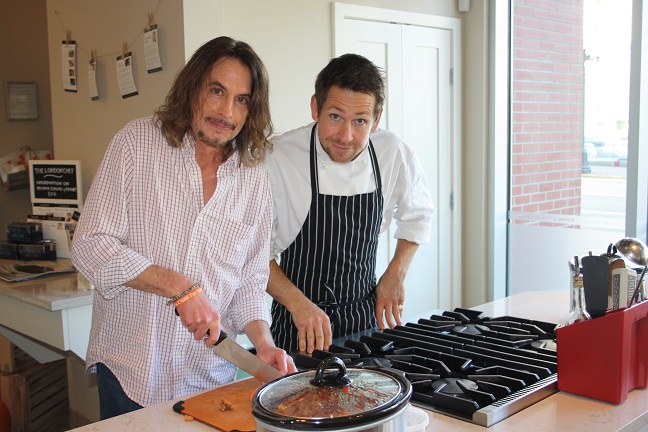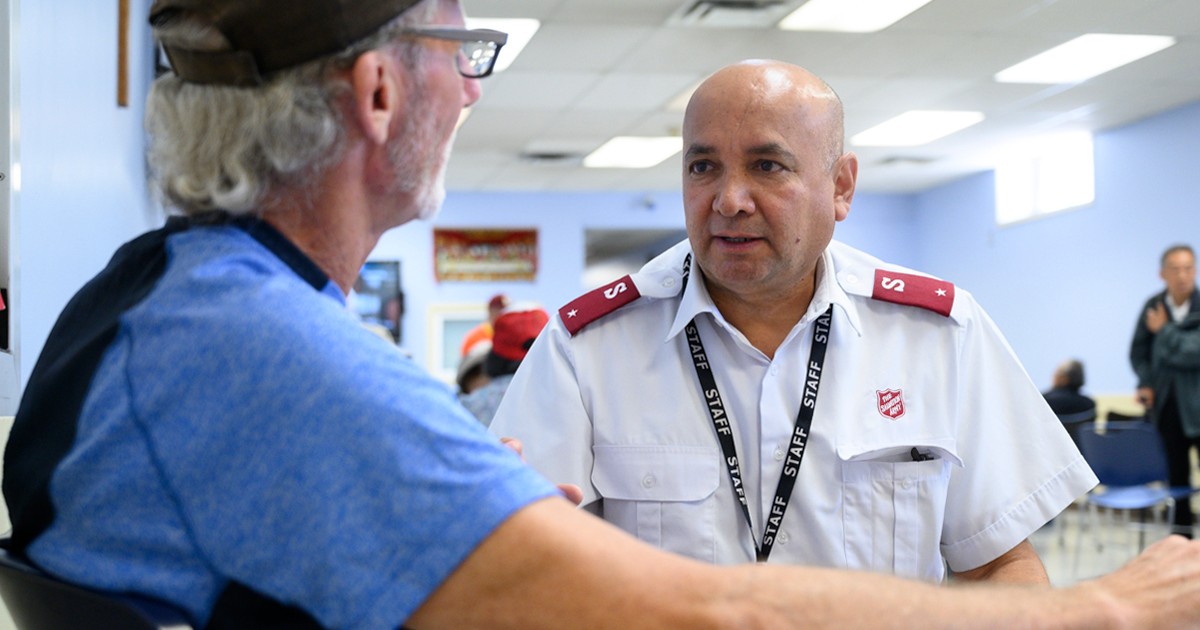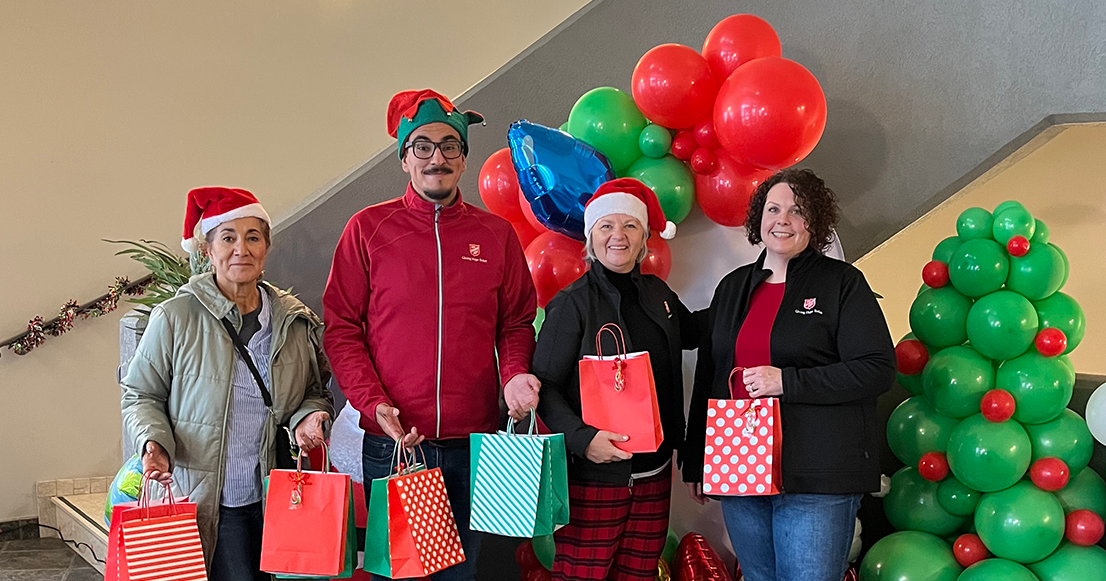The London Chef, a downtown Victoria cooking school, has partnered with The Salvation Army to help a community struggling with homelessness, poverty and addiction.
It's an initiative of the Army's Addictions and Rehabilitation Centre, designed to teach basic cooking skills to their clients as part of their transition into mainstream society.
“It's hard to imagine that too many people out there can't cook for themselves and are unable to do even the most basic tasks required for food preparation. We've found that 70 percent of our clients are the product of the foster-care system and some of them never had an opportunity to learn even simple food preparation skills,” says Jeff Baergen, The Salvation Army's residential program's manager, adding the organization's goal is to provide individuals in their program with the skills they need to overcome obstacles to independent living.
“It's one of a million barriers our people face, and cooking is such a fundamental skill that we all tend to take it for granted. Everyone can make a hard-boiled egg, right? Not so.”
Delicious Partnership
Chef Dan Hayes, who taught the dozen participants in the cooking class at The London Chef, was thrilled with the enthusiasm shown by the program's participants.
“They kept telling me how much fun they were having. It was so heartwarming,” says Dan. “Choosing and preparing food is not just one of the most important skills in life ... it's also good for the soul.”
Daryl Makarenko, one of the program participants, was very happy with the program, explaining the skills he acquired at the class were important and fun.
“We were taught so much in a short period of time, and I'd love to keep learning more about how to cook for myself,” says Daryl. “And the fact we were able to prepare a meal for the guys back at The Salvation Army was amazing. I can't wait to serve something I helped make.”
Program participants prepared a large vat of chili, chopping the vegetables, browning the meat and adding the spices needed to complete the dish. The final product was taken back to The Salvation Army where, after an appropriate time to simmer and meld the flavours, it was served to the transition program's 74 participants.
“The Salvation Army provided the food and sent each of the men who took the class back with the utensils needed for food preparation, a crock pot, and even dishes and cutlery so they can keep on cooking their own meals,” says Jeff.
Ashley Herlaar, manager of The London Chef, said her business was pleased to be able to partner with The Salvation Army in the initiative, and looks forward to hosting more sessions in the future.
Reprinted from Victoria News, November 10, 2016
It's an initiative of the Army's Addictions and Rehabilitation Centre, designed to teach basic cooking skills to their clients as part of their transition into mainstream society.
“It's hard to imagine that too many people out there can't cook for themselves and are unable to do even the most basic tasks required for food preparation. We've found that 70 percent of our clients are the product of the foster-care system and some of them never had an opportunity to learn even simple food preparation skills,” says Jeff Baergen, The Salvation Army's residential program's manager, adding the organization's goal is to provide individuals in their program with the skills they need to overcome obstacles to independent living.
“It's one of a million barriers our people face, and cooking is such a fundamental skill that we all tend to take it for granted. Everyone can make a hard-boiled egg, right? Not so.”
Delicious Partnership
Chef Dan Hayes, who taught the dozen participants in the cooking class at The London Chef, was thrilled with the enthusiasm shown by the program's participants.
“They kept telling me how much fun they were having. It was so heartwarming,” says Dan. “Choosing and preparing food is not just one of the most important skills in life ... it's also good for the soul.”
Daryl Makarenko, one of the program participants, was very happy with the program, explaining the skills he acquired at the class were important and fun.
“We were taught so much in a short period of time, and I'd love to keep learning more about how to cook for myself,” says Daryl. “And the fact we were able to prepare a meal for the guys back at The Salvation Army was amazing. I can't wait to serve something I helped make.”
Program participants prepared a large vat of chili, chopping the vegetables, browning the meat and adding the spices needed to complete the dish. The final product was taken back to The Salvation Army where, after an appropriate time to simmer and meld the flavours, it was served to the transition program's 74 participants.
“The Salvation Army provided the food and sent each of the men who took the class back with the utensils needed for food preparation, a crock pot, and even dishes and cutlery so they can keep on cooking their own meals,” says Jeff.
Ashley Herlaar, manager of The London Chef, said her business was pleased to be able to partner with The Salvation Army in the initiative, and looks forward to hosting more sessions in the future.
Reprinted from Victoria News, November 10, 2016










Leave a Comment